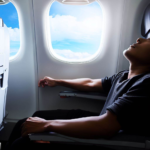Do you dread social situations? Do you feel anxious, self-conscious, and worried about being judged or embarrassed in public? If so, you may be struggling with social phobia.
Social phobia is a common anxiety disorder that affects many people worldwide and can significantly impact daily life.
Fortunately, there are strategies for managing social phobia. This article will explore evidence-based approaches to coping with social anxiety, including exposure therapy, cognitive-behavioral therapy techniques, relaxation techniques, and medication options.
By learning effective coping strategies for managing your fear in social situations, you can begin to feel more confident and comfortable in the company of others.
Understanding Social Phobia
 If you’re someone who feels anxious and nervous when surrounded by people, you might be dealing with social phobia – but don’t let that discourage you from learning about the underlying factors that contribute to this condition.
If you’re someone who feels anxious and nervous when surrounded by people, you might be dealing with social phobia – but don’t let that discourage you from learning about the underlying factors that contribute to this condition.
Social phobia, or social anxiety disorder, is a type of anxiety disorder characterized by an intense fear of being judged or scrutinized by others in social situations. People with social phobia may experience physical symptoms such as sweating, trembling, nausea, and rapid heartbeat.
The causes of social phobia are complex and can involve genetic, environmental, and developmental factors. Children who are shy or socially withdrawn may be at an increased risk of developing social phobia later in life. Trauma or negative experiences in early childhood can also contribute to the development of this condition. In addition, there may be a chemical imbalance in the brain that affects how individuals respond to stressors.
Social phobia can have a significant impact on daily life for those affected by it. It can cause people to avoid certain situations altogether, leading to isolation and feelings of loneliness. It can also affect relationships with family members and friends if they don’t understand what’s causing their loved one’s behavior.
However, there are effective treatments available for managing social phobia such as cognitive-behavioral therapy (CBT) or medication. By understanding the underlying causes and symptoms of social phobia, individuals can take steps towards overcoming their fears and improving their quality of life.
Exposure Therapy for Social Anxiety
Think of exposure therapy as a superhero that helps you conquer your fears by facing them head-on. This type of therapy is commonly used for social phobia, and it involves gradually exposing yourself to anxiety-provoking situations until you feel more comfortable in them.
For example, role playing exercises can be used to practice social interactions with a therapist or trusted friend. You may start off by simply introducing yourself and eventually work up to having a full conversation.
Another form of exposure therapy is virtual reality therapy. This allows individuals to experience simulated environments that trigger their anxiety in a safe and controlled setting. Through repeated exposures, the brain learns that these situations are not actually dangerous and the fear response begins to diminish over time.
Studies have shown that virtual reality exposure therapy can be just as effective as traditional in-person exposure therapy. While exposure therapy may sound intimidating at first, it has been found to be one of the most effective treatments for social phobia.
By confronting your fears instead of avoiding them, you can develop confidence in your ability to handle social situations without overwhelming anxiety. With guidance from a trained therapist, you can take small steps towards overcoming your fears and living a more fulfilling life.
Cognitive-Behavioral Therapy Techniques
You can learn techniques to challenge negative thoughts and beliefs, as well as develop new skills for managing your emotions and behaviors in difficult situations through cognitive-behavioral therapy (CBT). CBT is a type of psychotherapy that focuses on changing patterns of thinking and behavior. It has been found to be effective in treating social anxiety disorder.
Challenging thoughts is one technique used in CBT. This involves identifying and questioning negative thoughts that contribute to feelings of anxiety. You can learn how to recognize when you’re having a negative thought, such as “Everyone will think I’m stupid if I speak up,” and challenge it by asking yourself questions like “Is that really true? What evidence do I have for this thought?” By challenging these thoughts, you can begin to see things more realistically and reduce your anxiety.
Role-playing scenarios is another technique used in CBT for social anxiety disorder. In role-playing, you act out different scenarios with the therapist or someone else, practicing the skills you need to cope with those situations. For example, if you’re afraid of public speaking, you might practice giving a speech in front of the therapist or a small group of people. This can help desensitize you to the fear and build confidence in your ability to handle those situations.
By learning techniques like challenging thoughts and role-playing scenarios through cognitive-behavioral therapy, you can develop new skills for managing your social anxiety. With practice, these techniques can become second nature, helping you feel more comfortable and confident in social situations over time.
Relaxation Techniques for Managing Anxiety
Relaxation techniques, such as deep breathing and progressive muscle relaxation, can help reduce anxiety and promote a sense of calmness.
Meditation exercises are a popular relaxation technique that involves focusing your attention on the present moment while acknowledging and accepting any thoughts or feelings that may arise. This technique can be done in various ways, such as sitting quietly with your eyes closed or practicing mindful walking.
Breathing techniques are another effective way to manage anxiety and promote relaxation. One simple technique is diaphragmatic breathing, which involves taking slow, deep breaths from the abdomen rather than shallow breaths from the chest.
To do this, place one hand on your stomach and breathe deeply so that you feel your stomach rise and fall with each breath. Repeat for several minutes until you feel calmer.
Incorporating these relaxation techniques into your daily routine can help you cope with social phobia by reducing feelings of anxiety and promoting a sense of calmness.
These techniques can be done at home or in public places before entering social situations that may trigger anxious thoughts or feelings. Remember to practice regularly to build up your skills over time and don’t hesitate to seek professional help if needed for additional support in managing social phobia.
Medication Options for Coping with Social Phobia
Medication can offer relief for those struggling with social phobia, but it’s important to consult with a healthcare professional to determine the best options and potential side effects.
There are several types of medication that may be prescribed for social anxiety disorder, including antidepressants, anti-anxiety drugs, and beta-blockers.
Antidepressants such as selective serotonin reuptake inhibitors (SSRIs) and serotonin-norepinephrine reuptake inhibitors (SNRIs) are commonly used to treat social anxiety disorder. These medications work by increasing the levels of certain neurotransmitters in the brain which help regulate mood and anxiety. However, it may take several weeks for these medications to start working effectively.
Anti-anxiety drugs such as benzodiazepines may also be prescribed for short-term relief of symptoms associated with social phobia. While these medications can provide quick relief from anxiety symptoms, they have a high risk of dependence and addiction. Additionally, there is a potential for side effects such as drowsiness and impaired coordination.
It’s important to weigh the benefits against the risks before deciding on this type of medication.
How long does it typically take for someone to see improvement in social phobia symptoms with therapy or medication?
Typically, it takes a few weeks to several months for someone to see improvement in social phobia symptoms with therapy or medication.
The effectiveness of therapy varies depending on the approach used and the severity of the symptoms. Cognitive-behavioral therapy (CBT) is a common approach that has been shown to be effective in reducing social anxiety.
Medication duration also depends on the type of medication prescribed. Antidepressants, such as selective serotonin reuptake inhibitors (SSRIs), can take up to 4-6 weeks before noticeable improvement occurs.
It’s important to work closely with a mental health professional to determine the best course of treatment and monitor progress over time.
Can social phobia be completely cured, or is it something that someone will always have to manage?
Social phobia, also known as social anxiety disorder, can be managed through therapy and medication. However, it is unlikely to completely cure the condition.
Long-term effects of social phobia may include difficulty in forming relationships, limited career opportunities, and a lower quality of life overall.
It’s important to note that there are many self-help strategies that can aid in managing fear in social situations. These include cognitive-behavioral techniques such as exposure therapy and relaxation techniques like deep breathing exercises.
While social phobia may always need to be managed, with the right tools and support, it’s possible to live a fulfilling life despite its challenges.
Are there any alternative or complementary therapies that can be helpful in managing social phobia?
Mind-body techniques and herbal remedies have been found to be useful complementary therapies in managing social phobia.
Mind-body techniques such as meditation, yoga, and deep breathing exercises help reduce anxiety by calming the mind and body.
Herbal remedies like St. John’s Wort and passionflower have also shown promising results in reducing symptoms of social phobia.
However, it’s important to note that these alternative therapies shouldn’t replace traditional treatments such as therapy or medication but can be used alongside them for additional support.
It’s recommended to consult with a healthcare professional before starting any alternative therapy for social phobia management.
How can someone with social phobia explain their condition to friends and family, and ask for their support?
Are you struggling to explain your social phobia to friends and family? It can be difficult to open up about a mental health condition, but creating a supportive environment is crucial for managing social anxiety.
Start by educating your loved ones on what social phobia is and how it affects you. Dealing with misconceptions is also important – many people may not understand the severity of your anxiety or assume that you can simply ‘get over it.’
Be honest about how social situations make you feel and communicate any specific triggers or coping mechanisms that help you manage your fear. Remember, asking for support isn’t a sign of weakness – it’s an important step in taking control of your mental health.
Are there any lifestyle changes, such as diet or exercise, that can help alleviate symptoms of social phobia?
To alleviate symptoms of social phobia, it’s important to incorporate healthy habits into your lifestyle.
Regular exercise can help reduce anxiety and stress levels, while a balanced diet rich in nutrients can improve overall well-being.
Additionally, relaxation techniques such as deep breathing exercises and meditation can help calm the mind and body.
It’s important to note that these lifestyle changes should not replace professional treatment for social phobia, but rather be used in conjunction with therapy or medication.
Research suggests that incorporating these healthy habits can lead to improved mental health outcomes and overall quality of life.
Managing social phobia may seem daunting, but there are multiple strategies that can help you cope with your fears in social situations.
Exposure therapy and cognitive-behavioral therapy techniques are evidence-based approaches that have shown success in reducing anxiety levels. Additionally, relaxation techniques such as deep breathing and progressive muscle relaxation can be effective in managing anxious feelings.
While medication options exist to aid in coping with social phobia, it’s important to remember that they should only be used under the guidance of a medical professional.
Ultimately, finding what works best for you may involve a combination of these strategies or others not mentioned here. With determination and persistence, you can learn to manage your fears and live a fulfilling life despite the challenges posed by social phobia.





